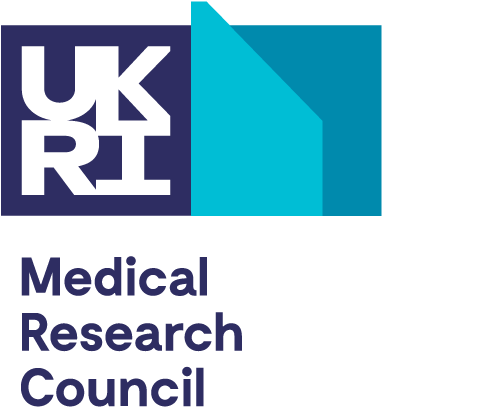
Keeping Older people healthy: deSigning and evaluating effective HEalth Services to maintain functional AbIlity (KOSHESAI)
Part of a Healthy Ageing Research Programme in Sub-Saharan Africa
April 2023-March 2028
Research Summary
Background
Life expectancy is rising more rapidly in Africa than any other continent. Whilst welcome, longevity alone is insufficient, maintenance of functional ability is crucial, that is Healthy Ageing. Yet older people in Low and Middle-Income Countries (LMICs) are currently spending longer living with disability and dependence than in high-income settings, leading to individual, societal, and healthcare burdens.
The World Health Organization (WHO) defines healthy ageing as ‘the process of developing and maintaining the functional ability that enables wellbeing in older age’. Functional ability consists of a person’s intrinsic capacity within their environment, drawing on physical capacity to walk, see and hear, as well as their cognitive capacity. As health services develop to meet the growing needs of ageing populations, there is an opportunity now to proactively plan innovative ways of providing healthcare to help people age well. In this research programme we want to understand why some people age healthily and some ‘unhealthily’, and then develop a ‘Healthy Ageing Check-up’, run by nurses and therapists in local communities, where older people can be assessed and offered practical management to maintain health as they age. This research is important to bridge the growing gap between need and resource and provide universal health coverage for older people.
Aim
To develop and implement an evidence-based clinical framework for non-specialist assessment and management of chronic disorders of ageing which impact functional ability, to improve health and wellbeing of older people living in Zimbabwe.
Sudy Design
The programme comprises 5 work packages:
1: Characterisation of ‘healthy ageing’ in Zimbabwe;
2: Formative work to develop an integrated multi-component health check for community-dwelling older adults;
3: Co-design and implementation of community-based healthy ageing peer-to-peer support groups;
4: Effectiveness-intervention hybrid study and mixed-methods process evaluation of the healthy ageing check;
5: Co-development of a ‘Healthy Ageing Intervention Toolkit’.
Our research team will work with a range of stakeholders, healthcare experts and older people themselves, to develop a health check-up for people aged 65 years and older, that we will test in Zimbabwe.
Intervention
An integrated multi-component health check for community-dwelling older adults, screening for conditions impacting intrinsic capacity, spanning mobility, malnutrition, cognition, depression, vision, hearing, and continence. If screening positive, initial on-the-spot care will be provided, care will be supported by community-based healthy ageing peer-to-peer support groups, promoting functional ability by facilitating self-management. We expect most older people will have problems in several areas. When we identify a problem we will offer advice, practical solutions, link people together in community peer groups to enable self-management, and if needed facilitate specialist referral, using an integrated personalised care plan.
Study population
Populations will represent urban and rural living. We will screen 824 older people (age ≥ 65 years) living in Harare and 824 living in Murehwa District, Mashonaland East. Older people, families, carers and other stakeholders (health service providers, community leaders etc.) will participate in formative study development and evaluation workshops and interviews.
Study outcomes
The primary outcome will be the proportion of those screening positive for ≥1 condition who receive appropriate on-the-spot care or complete appropriate referral to peer-to-peer support and/or a health facility within 4 months. Secondary outcomes include i) clinical outcomes among those screening positive, ii) yield of previously undiagnosed/ unreferred conditions; iii) costs of intervention components; and iv) process evaluation indicators including coverage, fidelity, acceptability and intervention quality.
We will test how well the roll-out of this system of health checks works, for example how often we identify a health problem, how often we can offer a solution and, when we follow participants up again after 4 months, how frequently the older person has taken up the recommendations. As well as calculating how much it costs to provide the health check-ups and care, we will see if people experience extra ‘out-of-pocket’ costs because of the health checks, and if so, the reasons for this. Throughout, we will gather detailed feedback from patients, families, and healthcare workers, about the health check-up programme, so that we can refine and improve the process.
Findings will inform the development of a ‘Healthy Ageing Intervention Toolkit’ to guide the structured, comprehensive, person-centred approach for non-specialist assessment and management of functional ability in older people suitable for scale-up across sub-Saharan Africa.
Study timeline
The planned duration of the entire programme will be 5 years. Formative work will take 12 months. The urban cohort will be recruited first, and rural cohort second. Each cohort will be followed for approximately 4 months.
We will work closely with local communities throughout the research to understand perspectives, seek advice, feedback progress and importantly to develop peer-support groups, each led by a community champion, trained by our team. Peer-support groups will bring together older people with similar conditions to enable group-based self-management (e.g., group exercises, group discussions about nutrition, and memory exercises).
Lead: Prof. Celia Gregson, NIHR Global Health Professor of Healthy Ageing, The Health Research Unit of Zimbabwe (THRU ZIM), The Biomedical Research and Training Institute, Harare, Zimbabwe
KOSHESAI Study coordinator: Mr Ted Manyanga, The Health Research Unit of Zimbabwe (THRU ZIM), The Biomedical Research and Training Institute, Harare, Zimbabwe.
Funded by: The National Institute for Health Research and Medical Research Council UK.
 .
. 

